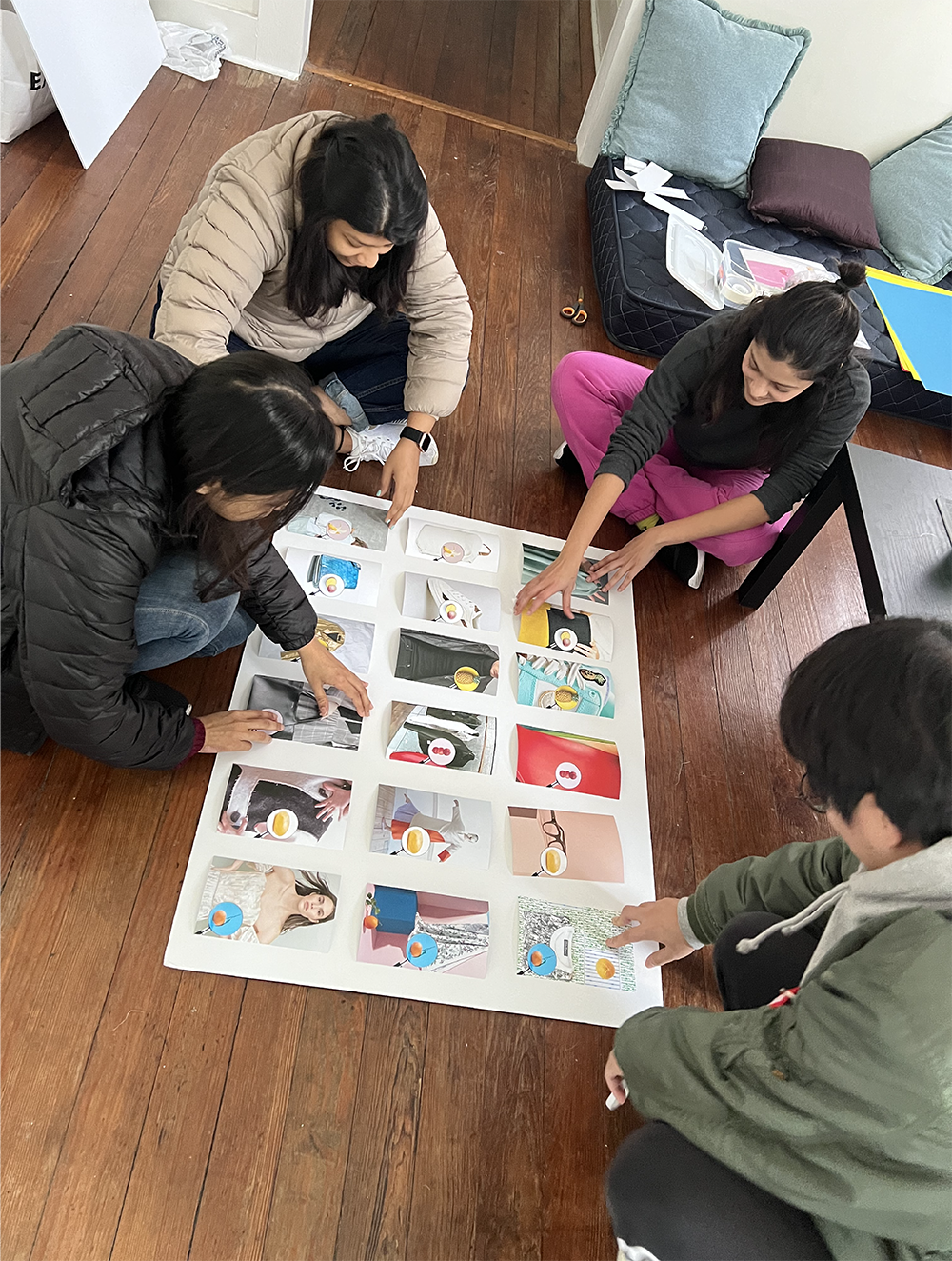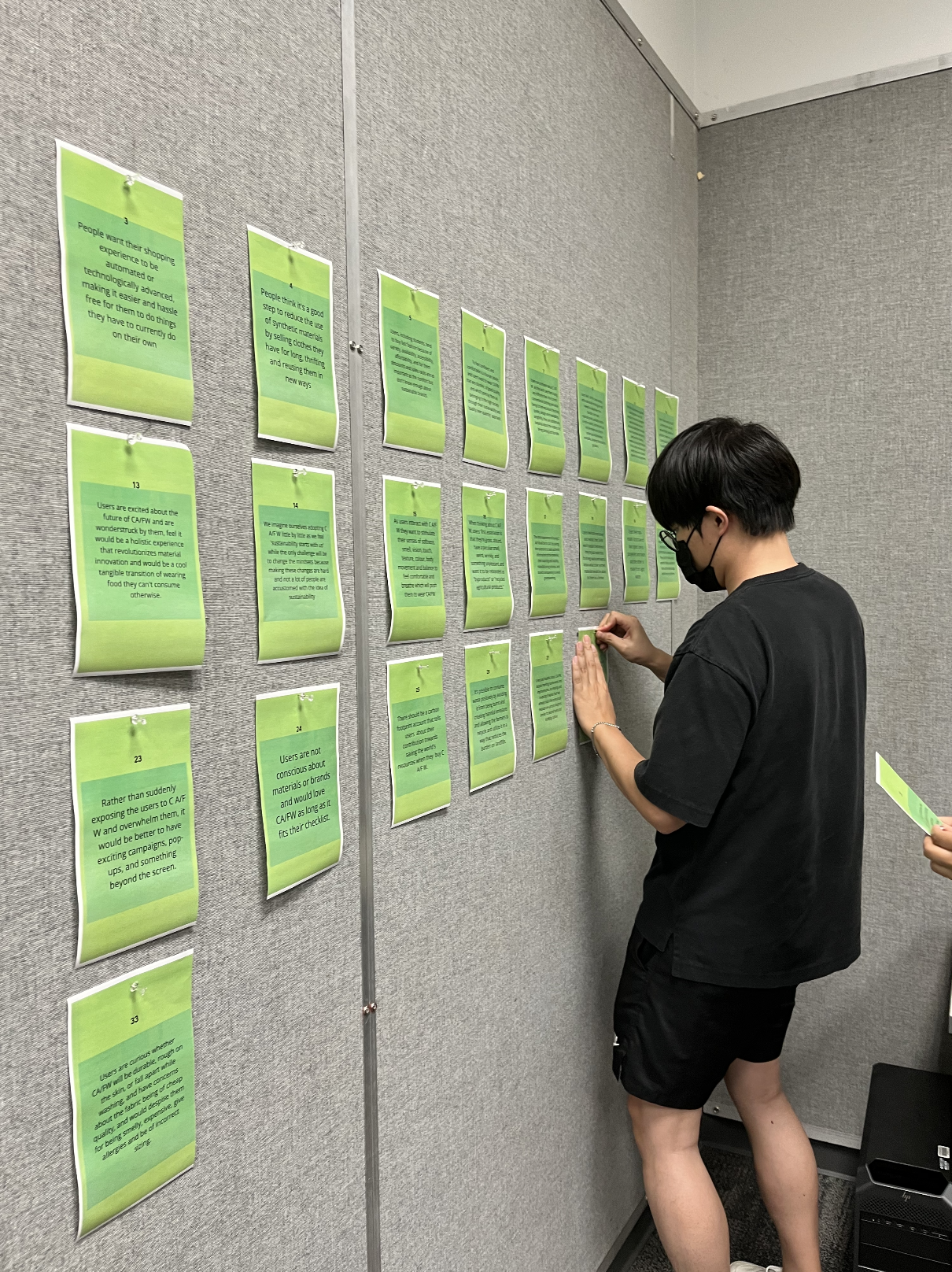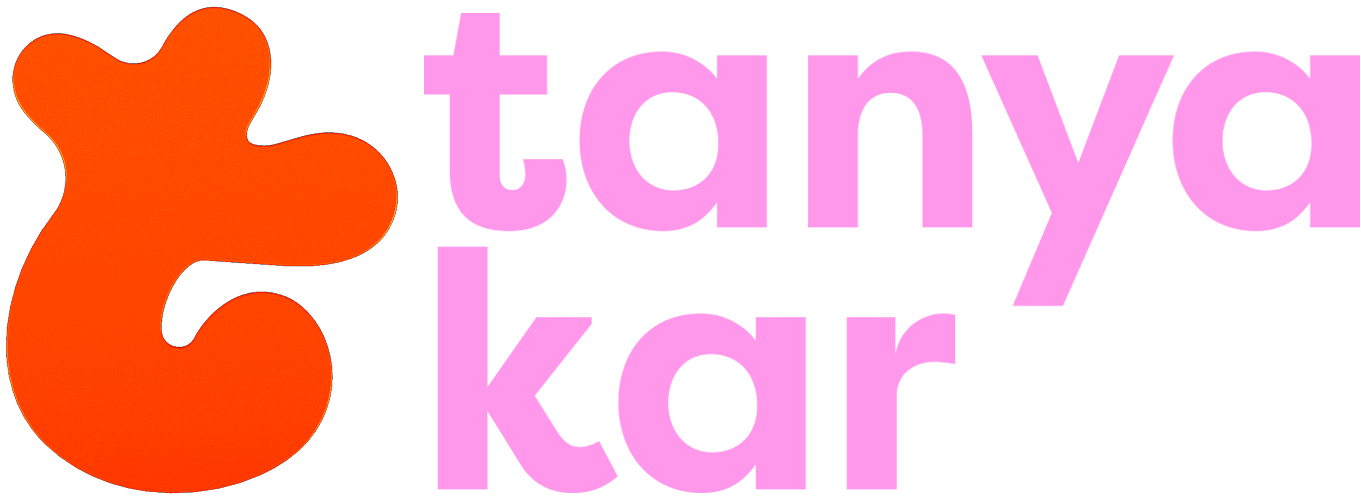Waste to Wealth:
Methods of Contextual Research
In this Lextant Certificate Program called Methods of Contextual Research at SCAD, we learned principles and techniques to conduct future-focused research that is actionable across all functions of an organization.
A team of 5 individuals across different disciplines, we wanted to take this opportunity to explore Clothes made out of Agricultural/Food Waste, a new dimension of diverse sustainable alternate materials which reduce the impact of the fashion industry. Our goal was to understand the mindsets of consumers and the barriers that prevent them from widely adopting these materials.
This project was created as an entry for the BioDesign Challenge.
A team of 5 individuals across different disciplines, we wanted to take this opportunity to explore Clothes made out of Agricultural/Food Waste, a new dimension of diverse sustainable alternate materials which reduce the impact of the fashion industry. Our goal was to understand the mindsets of consumers and the barriers that prevent them from widely adopting these materials.
This project was created as an entry for the BioDesign Challenge.
Ethnography, Qualitative Research, Contextual Inquiry,
Human-Centred Design, Visual Design
Mentor: Kwela Hermanns︎︎︎ (Associate Chair of Industrial Design and Design for Sustainability at Savannah College of Art and Design)
Program under Lextant Certification︎︎︎ and in collaboration with BioDesign Challenge︎︎︎
Year of Completion: 2022
Team:
Aditi Balapure
Brian Zee
Disha Goyal
Neha Reddy Alle
Tanya Kar
Human-Centred Design, Visual Design
Mentor: Kwela Hermanns︎︎︎ (Associate Chair of Industrial Design and Design for Sustainability at Savannah College of Art and Design)
Program under Lextant Certification︎︎︎ and in collaboration with BioDesign Challenge︎︎︎
Year of Completion: 2022
Team:
Aditi Balapure
Brian Zee
Disha Goyal
Neha Reddy Alle
Tanya Kar

THE WHY
According to U.N. Environment, the global fashion industry is responsible for

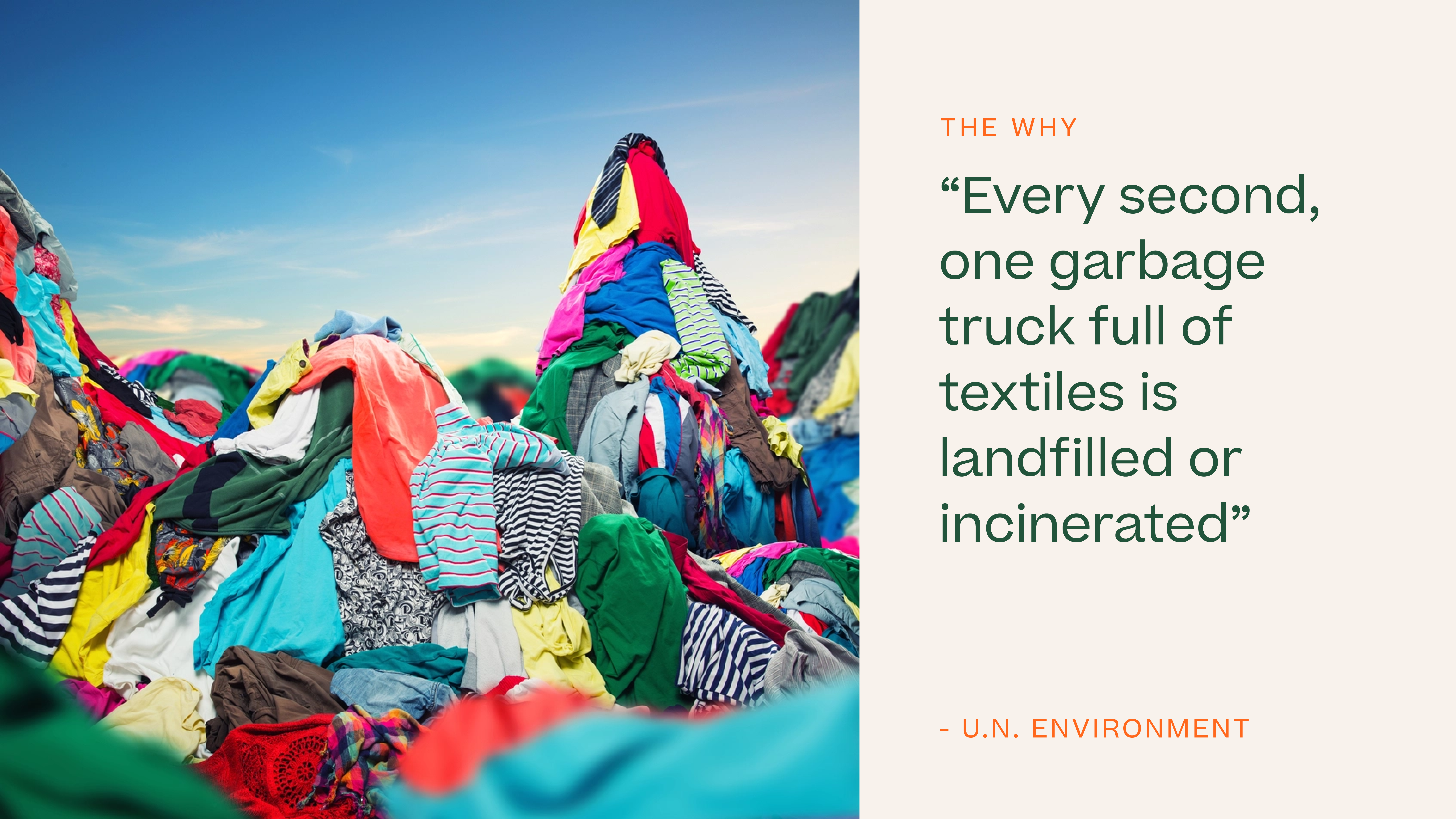
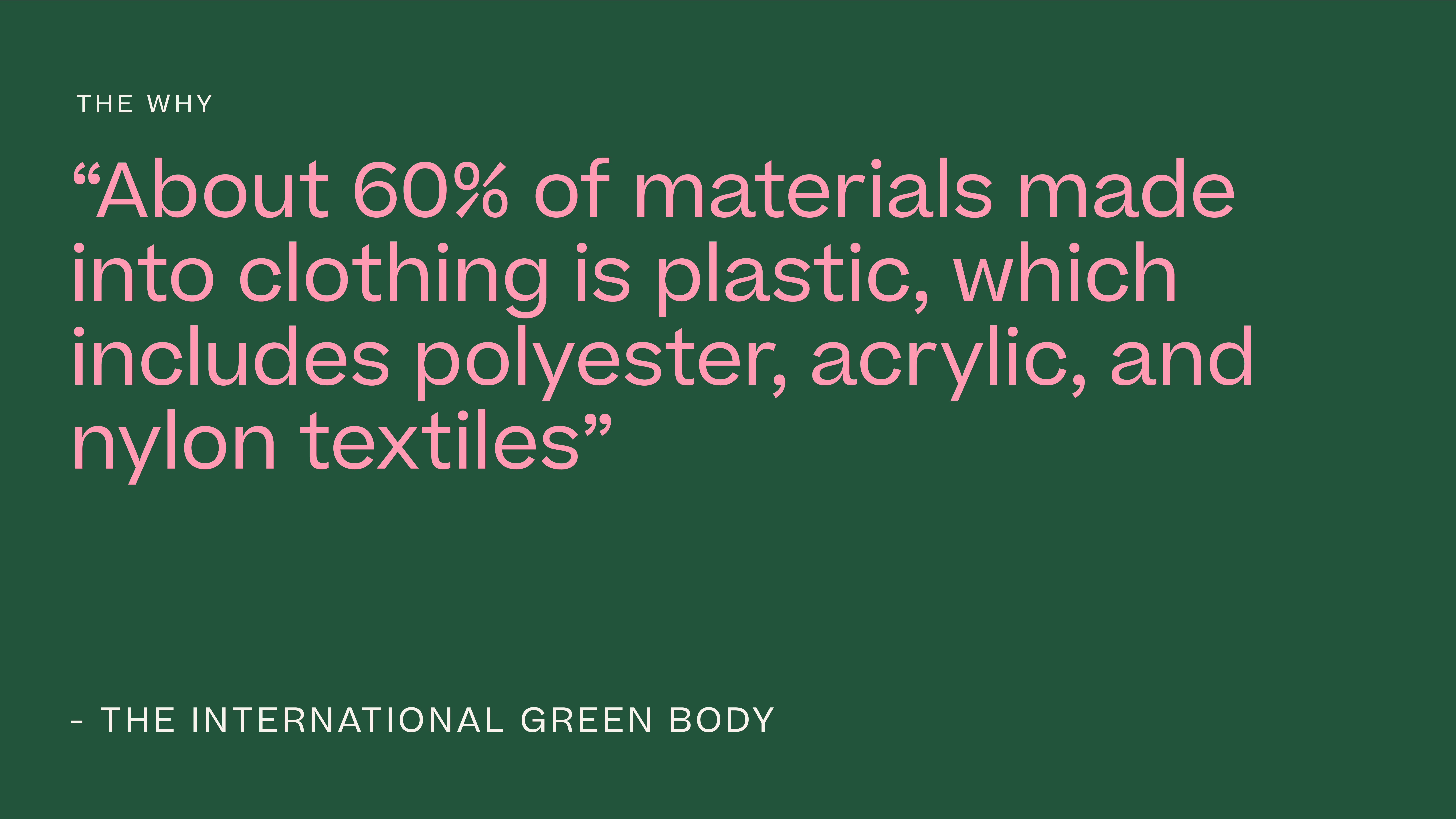
We found it significantly necessary to adopt environment-friendly fabrics and found our passion in Materials made out of Agricultural or Food Waste.
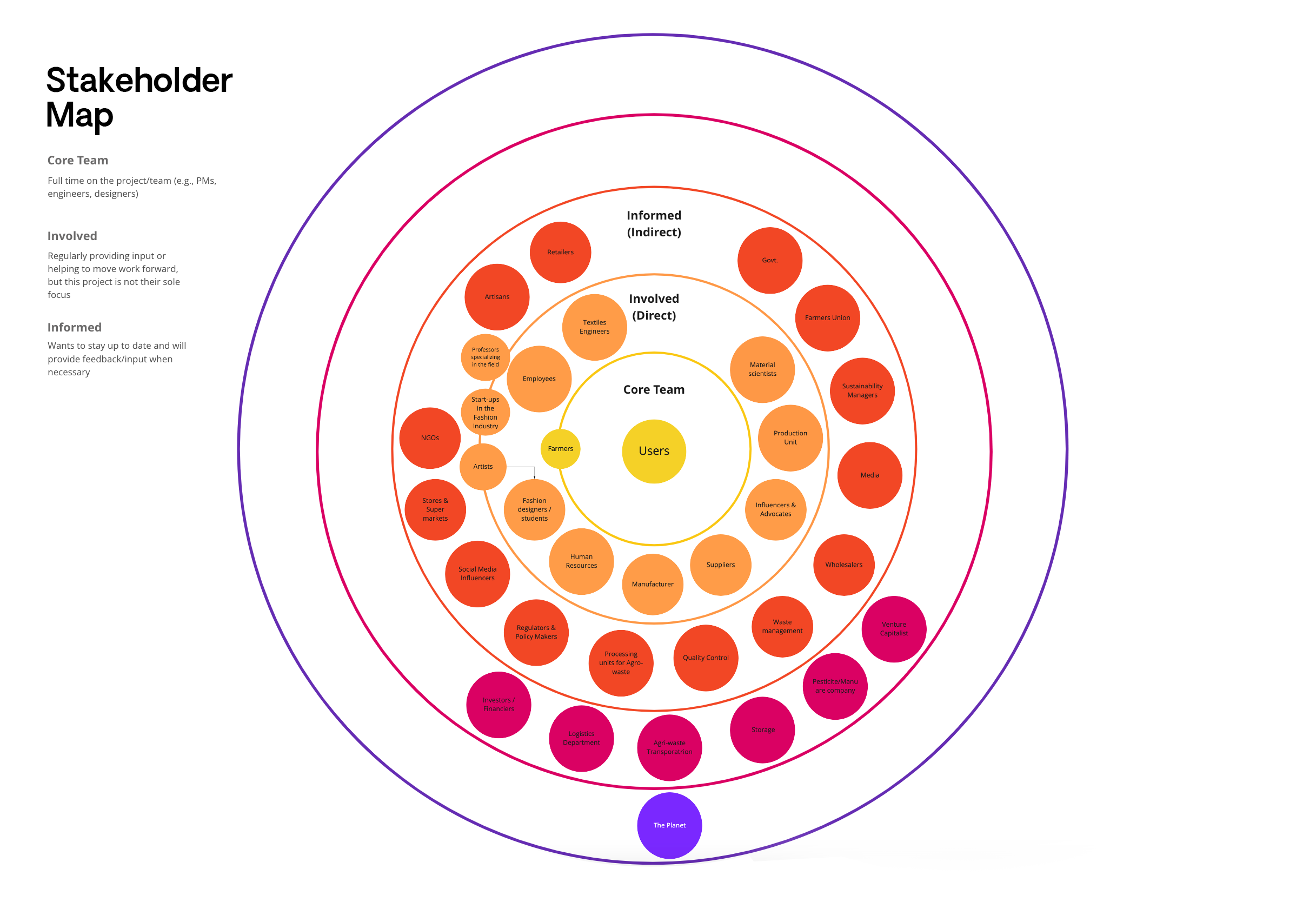
The 5 stages of Contextual Research:
1. Relevance and Value
2. Methods and Techniques
3. Analysis
4. Framework
5. Storytelling
Methods of Data Collection that we tried:
1. Screener Survey
2. In-depth Interviews
3. Sensory Cue Workshop
4. Survey
5. Cultural Probe
Surveys
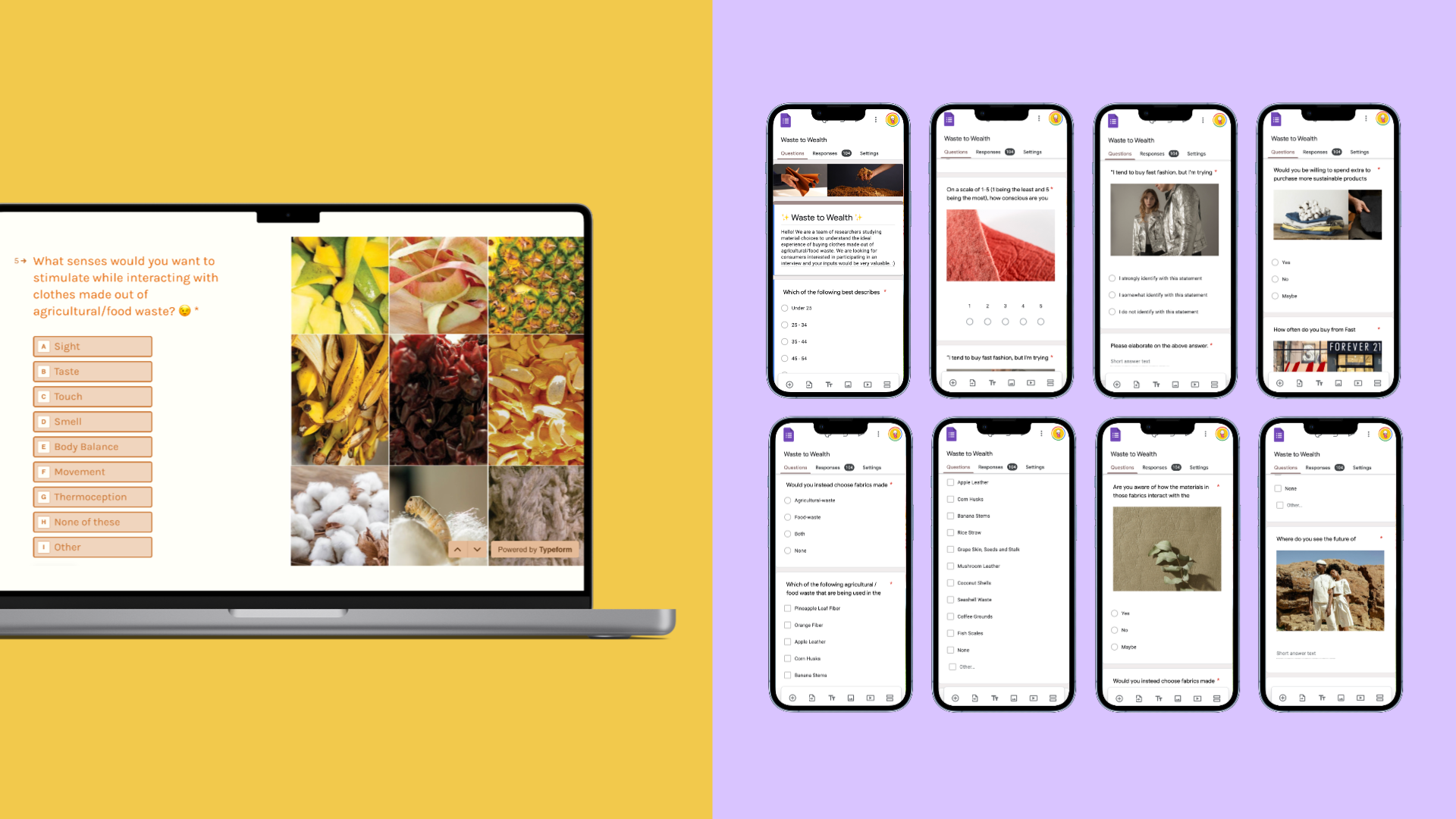
We conducted 25 User
and Expert Interviews
See some of the snippets below

Cultural Probe at Forsyth Park (Savannah, GA)


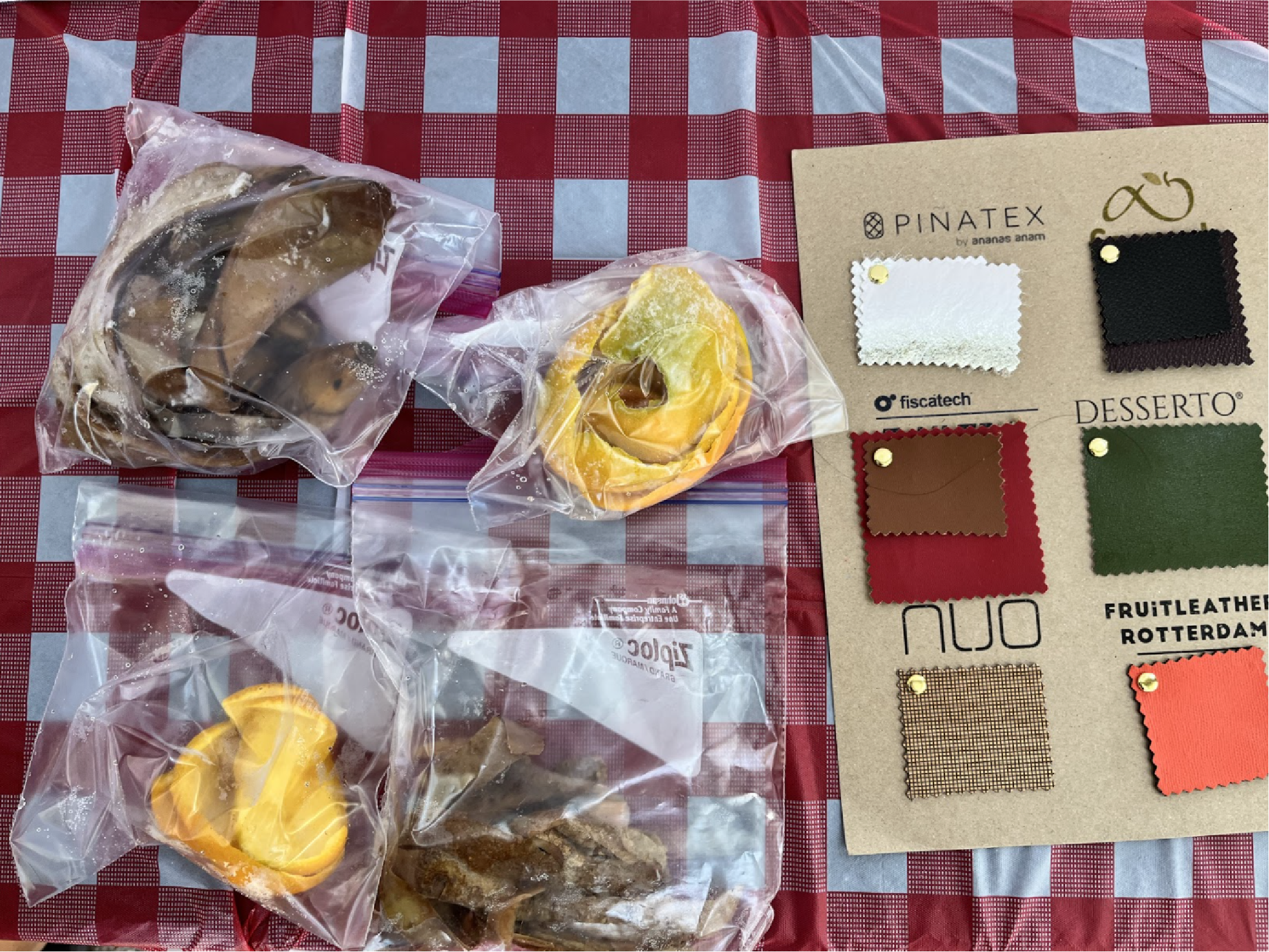
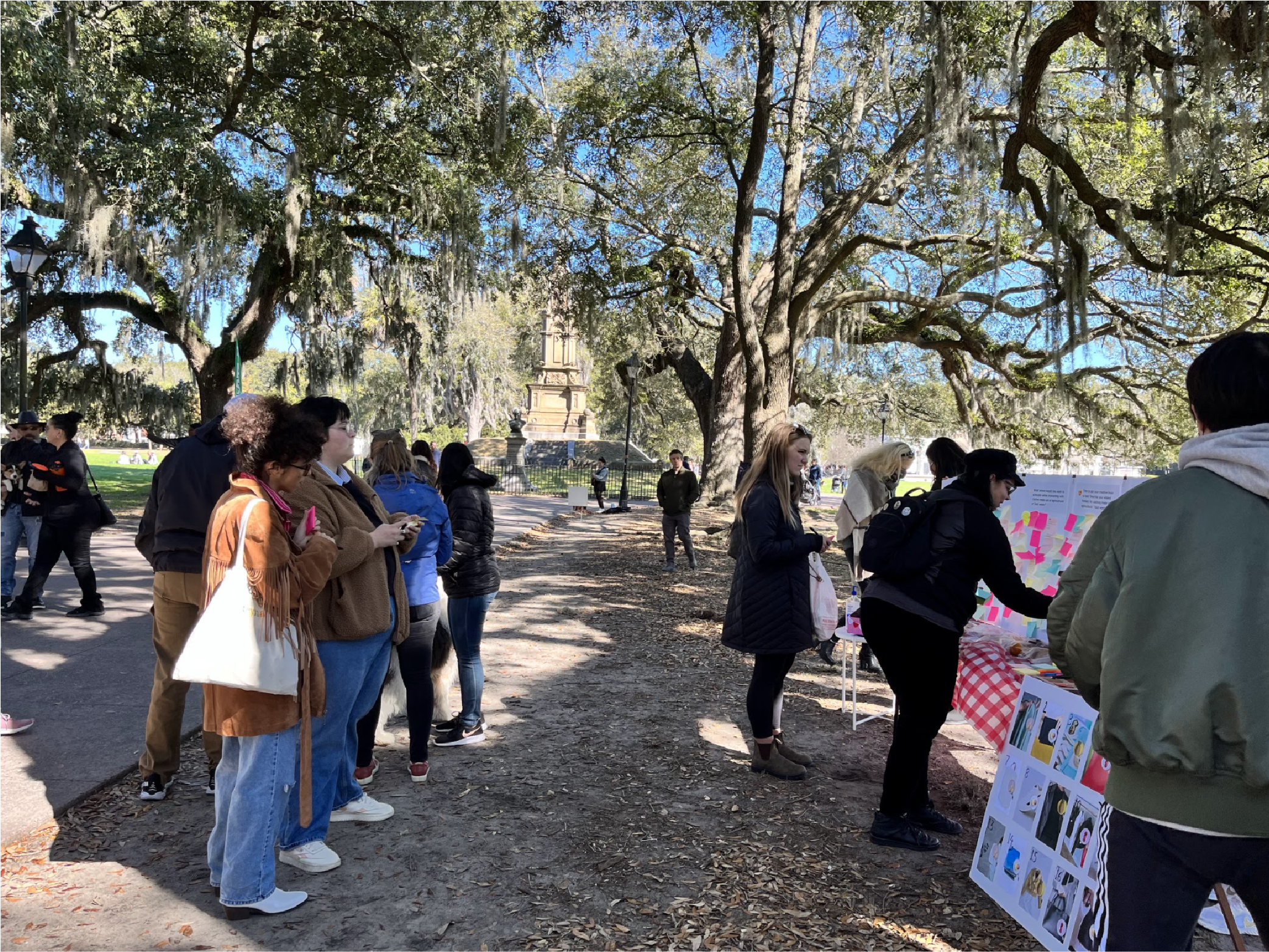

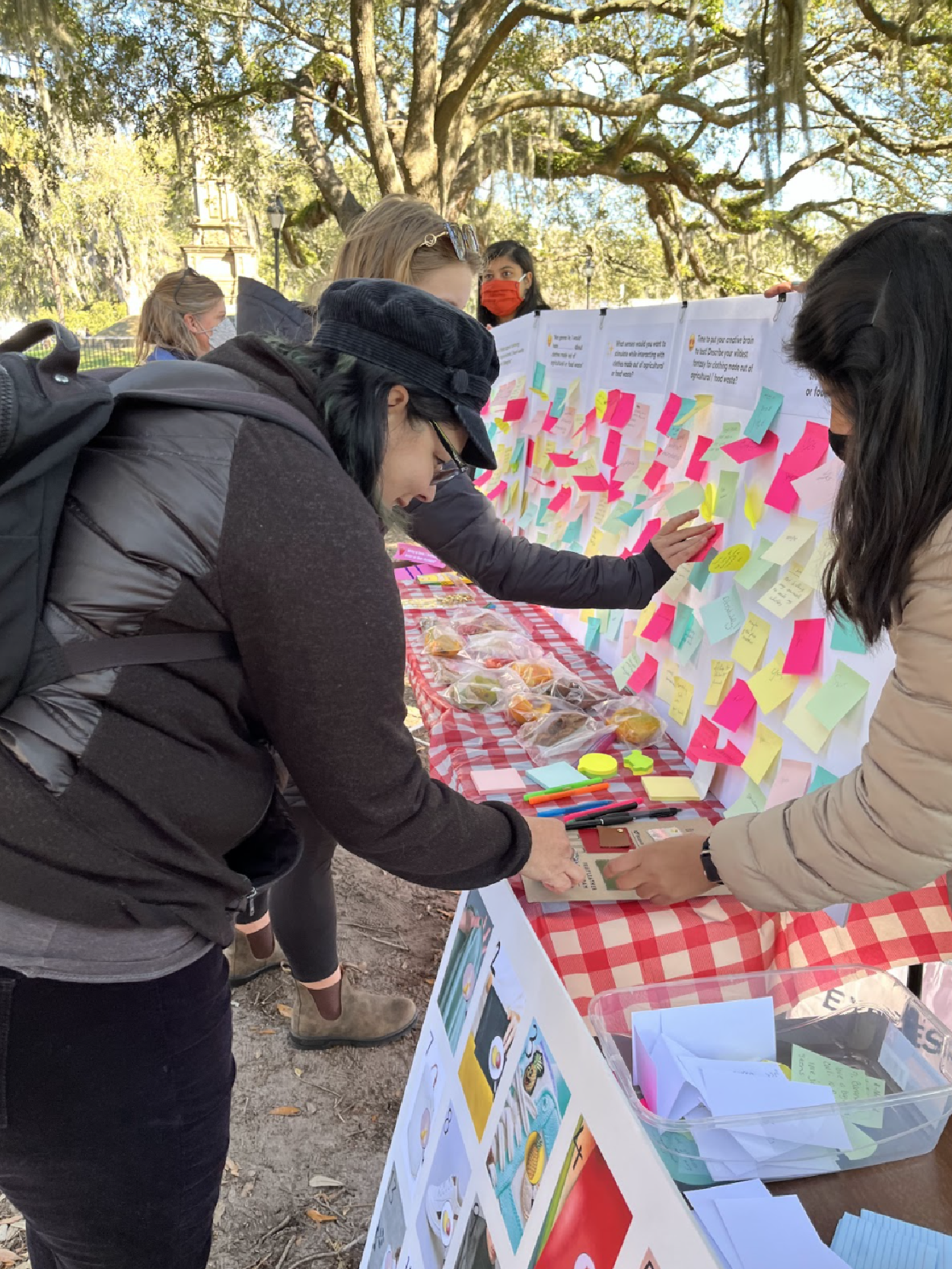

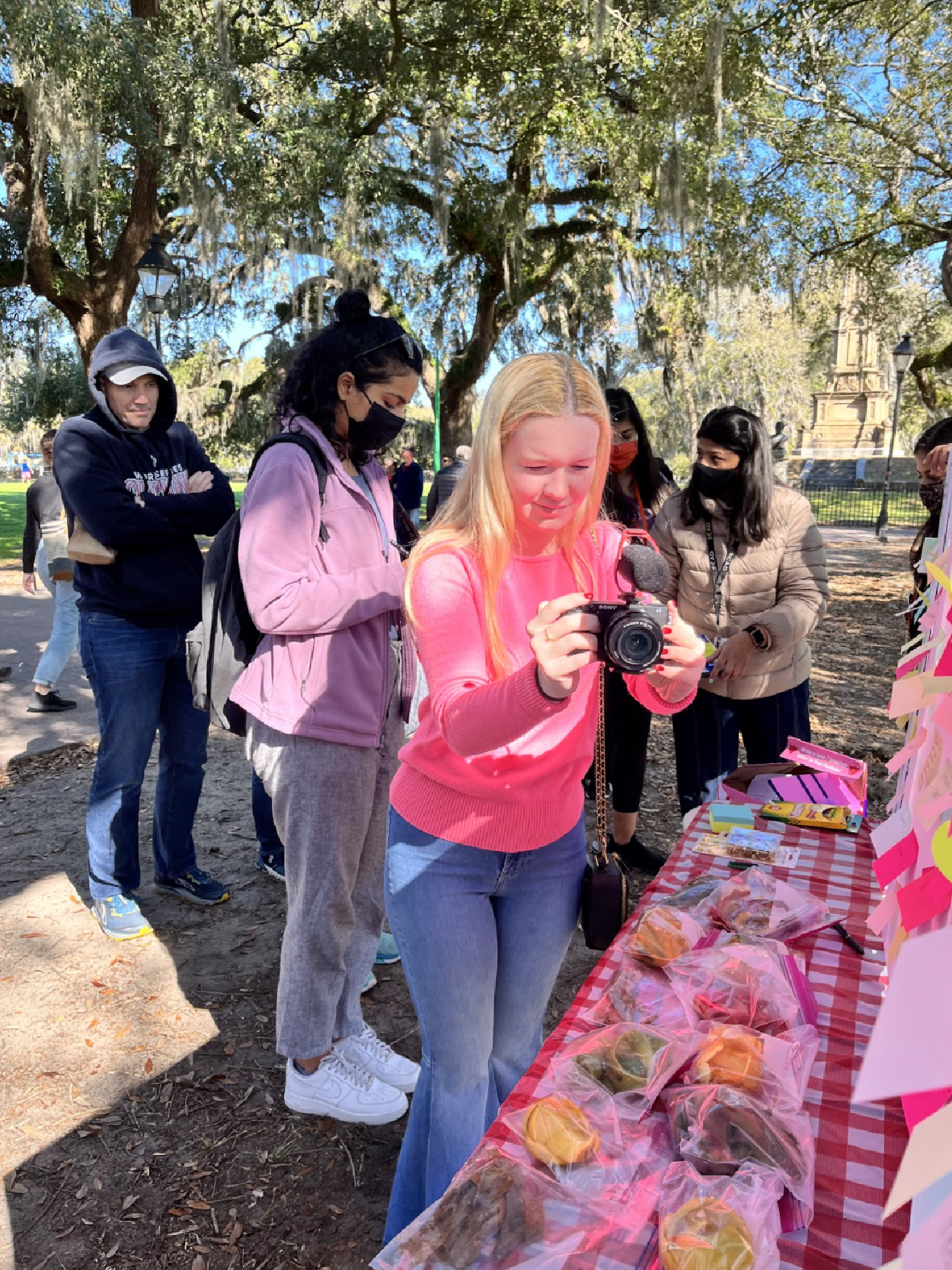
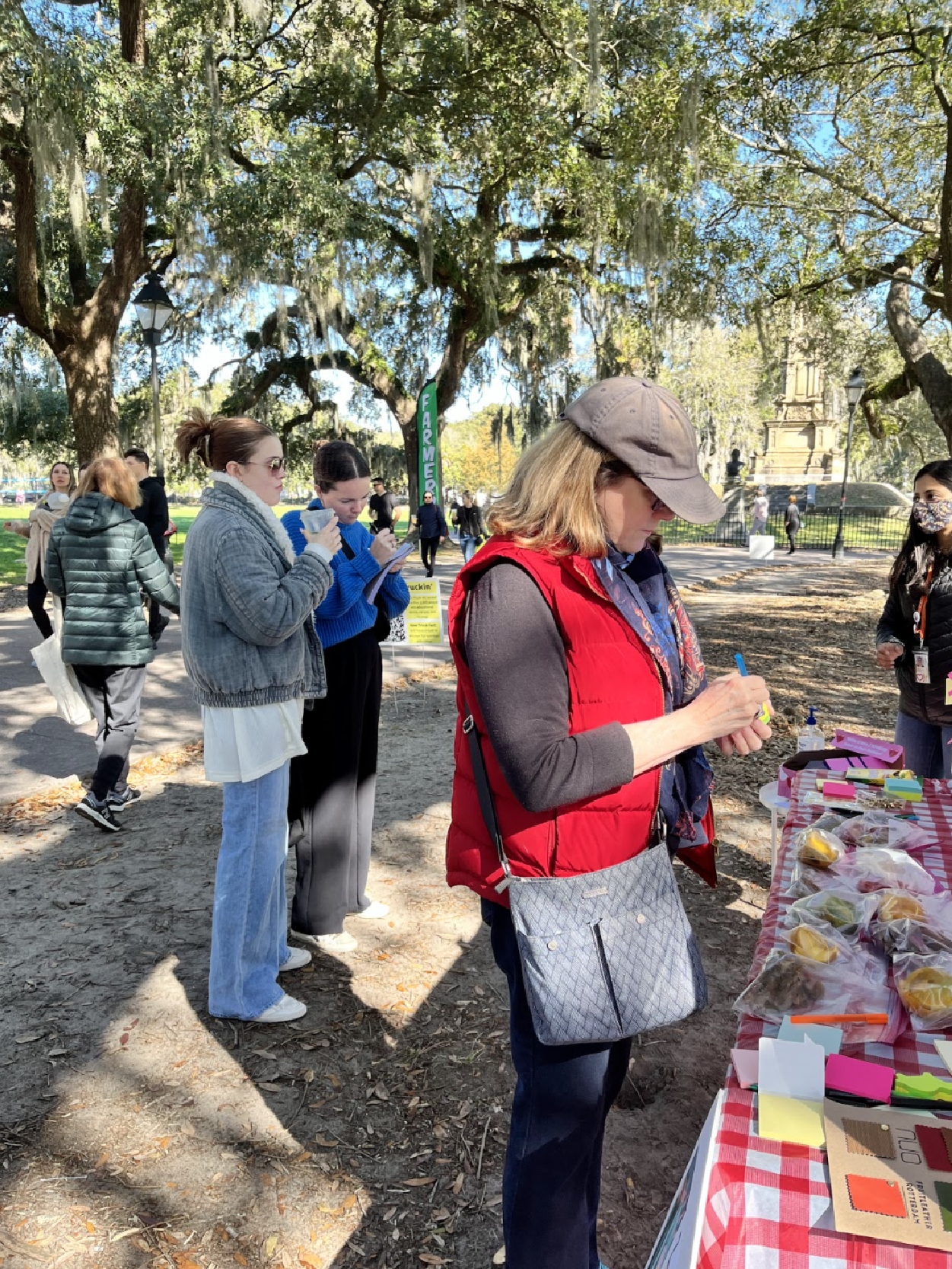
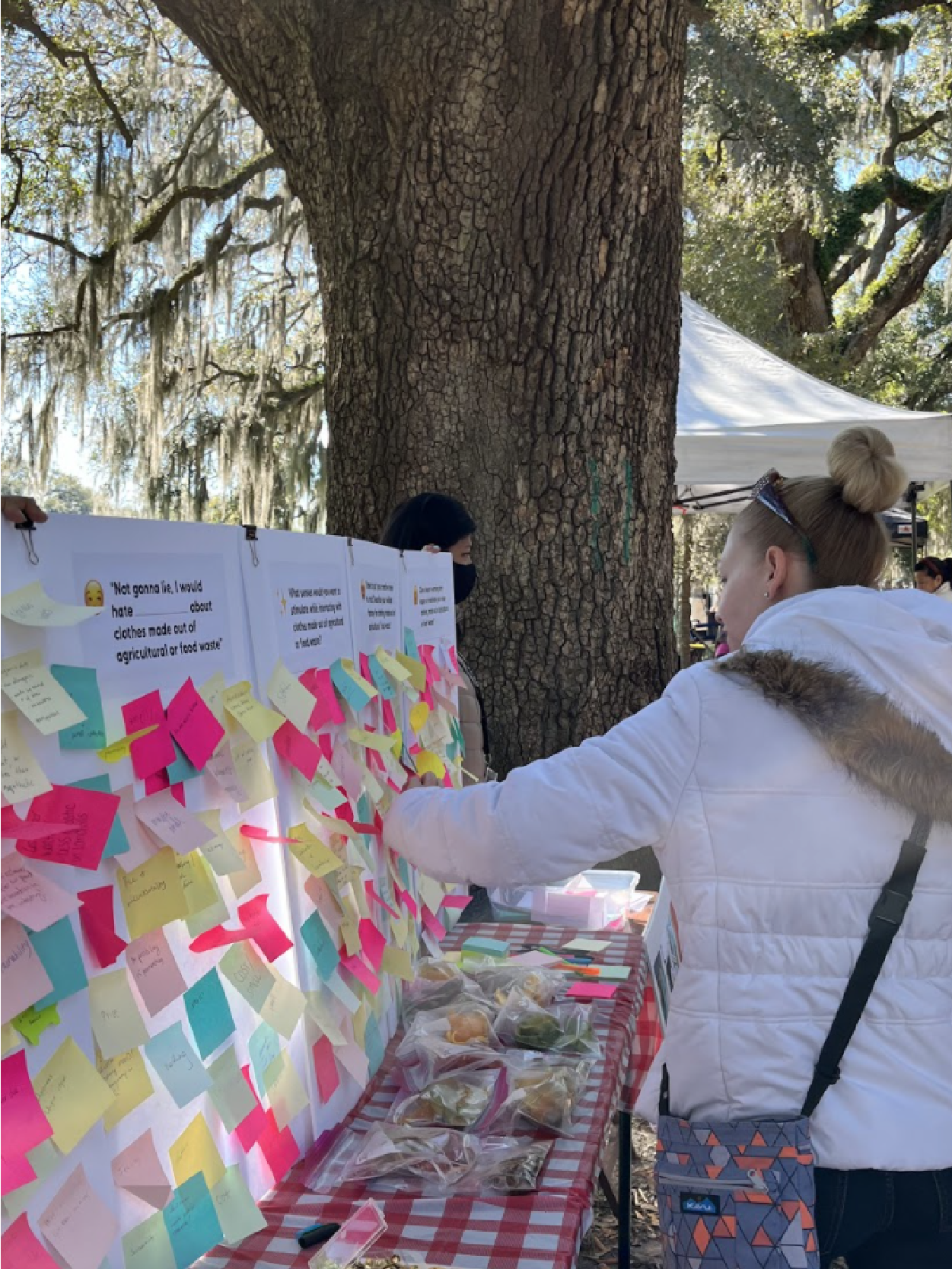
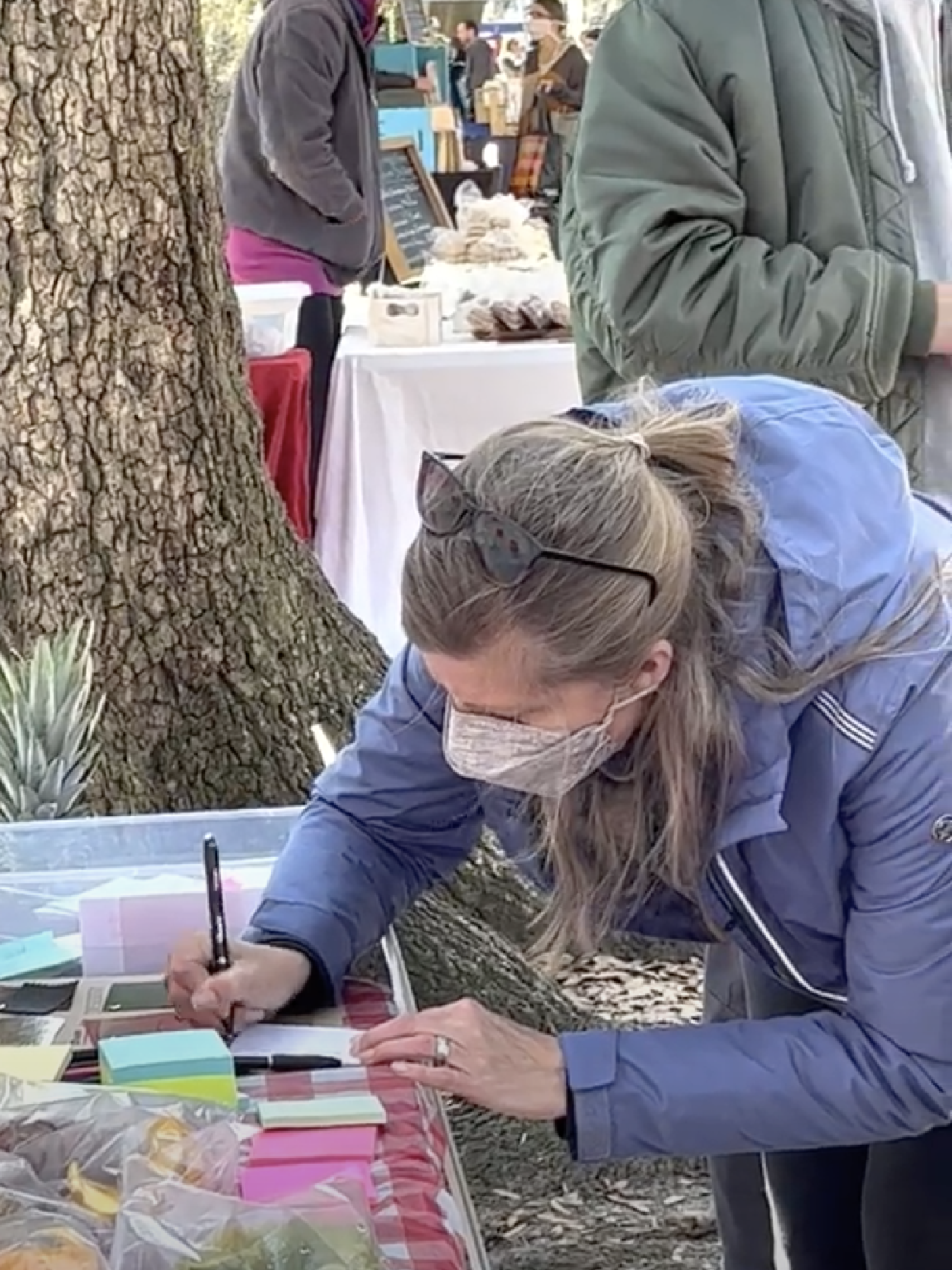
We asked our participants to write a
‘Love or a Break-up Letter’ to Fast Fashion, which received the maximum attraction and generated creative heart-based responses!
‘Love or a Break-up Letter’ to Fast Fashion, which received the maximum attraction and generated creative heart-based responses!
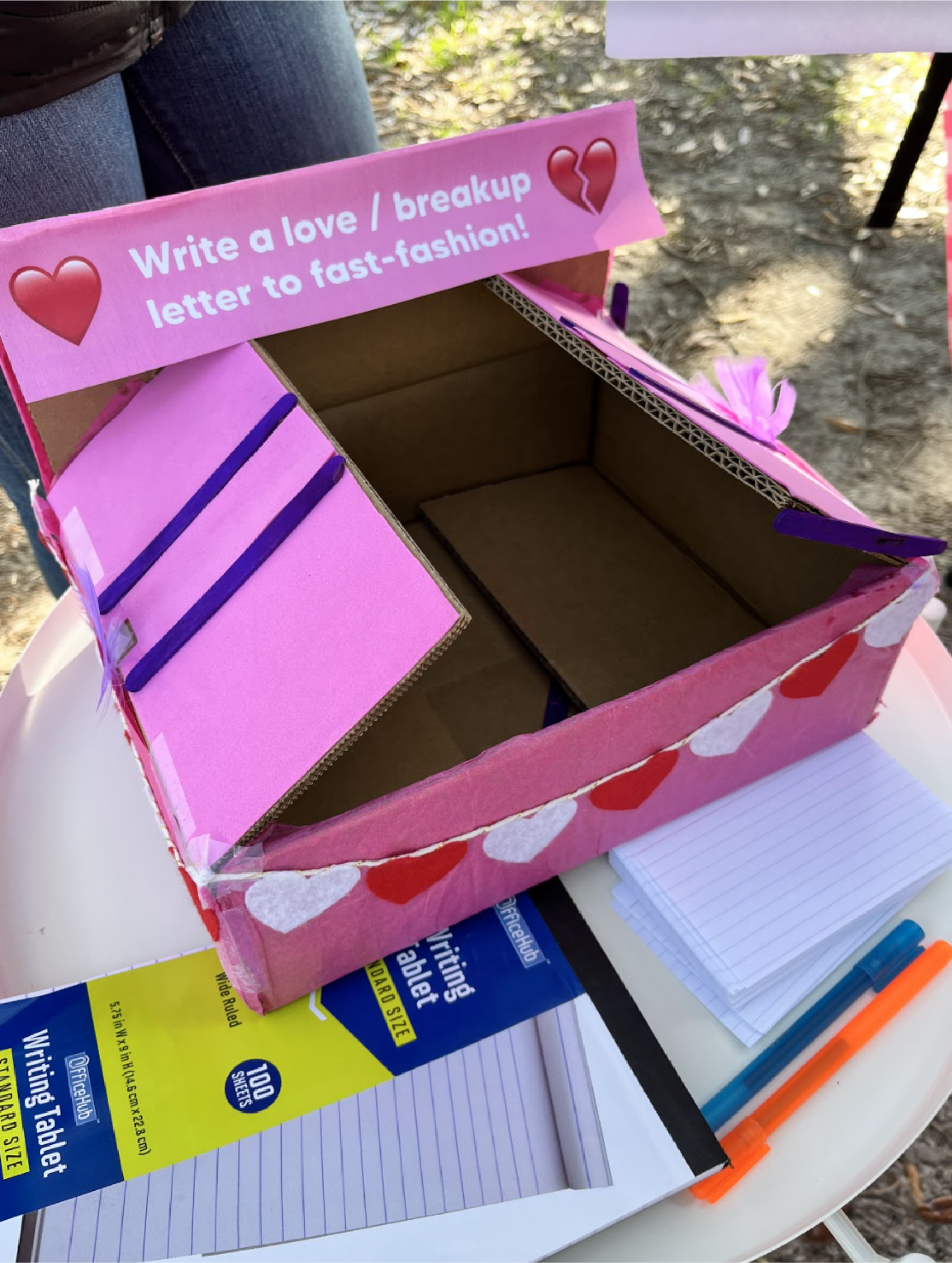
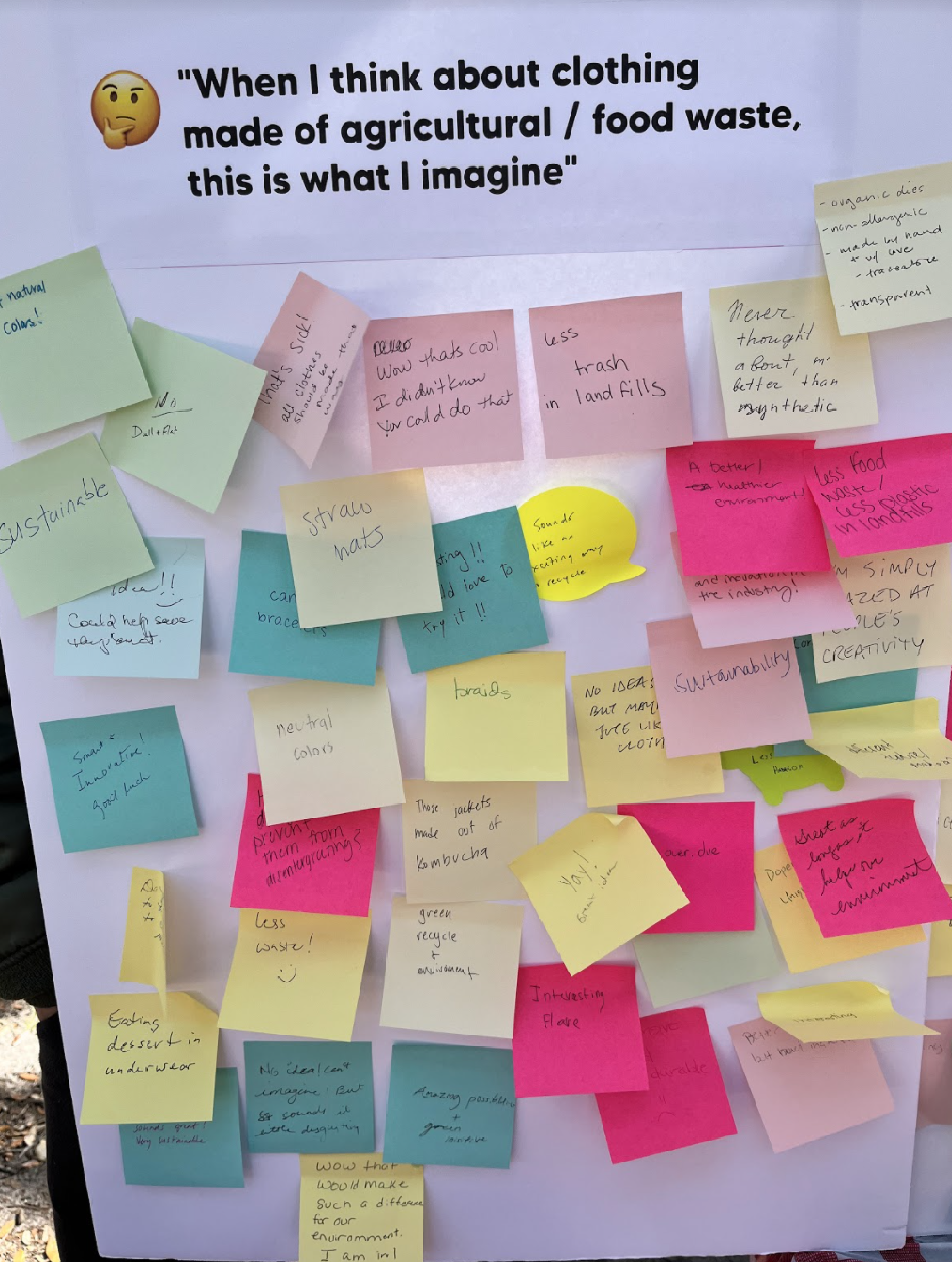
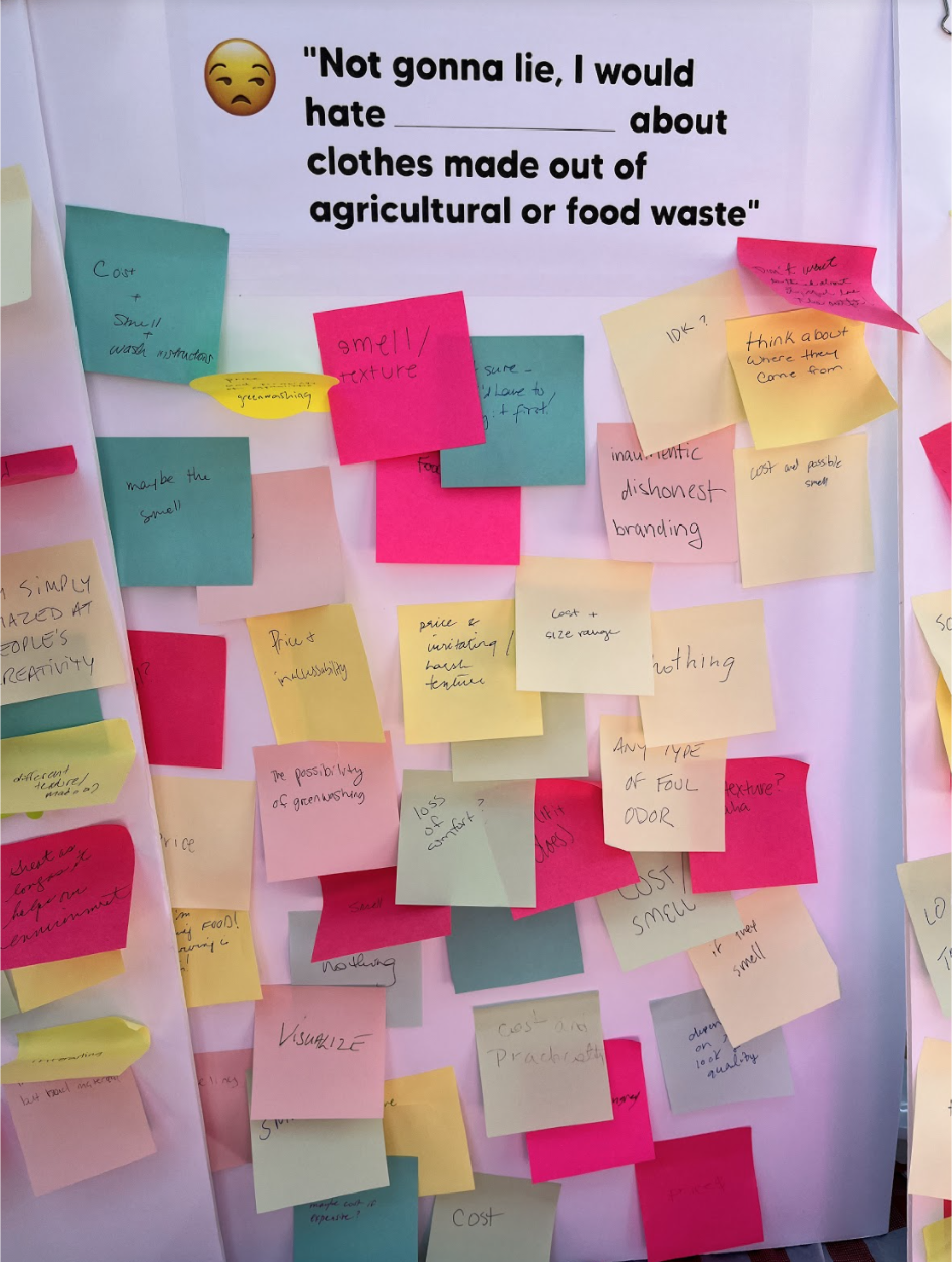
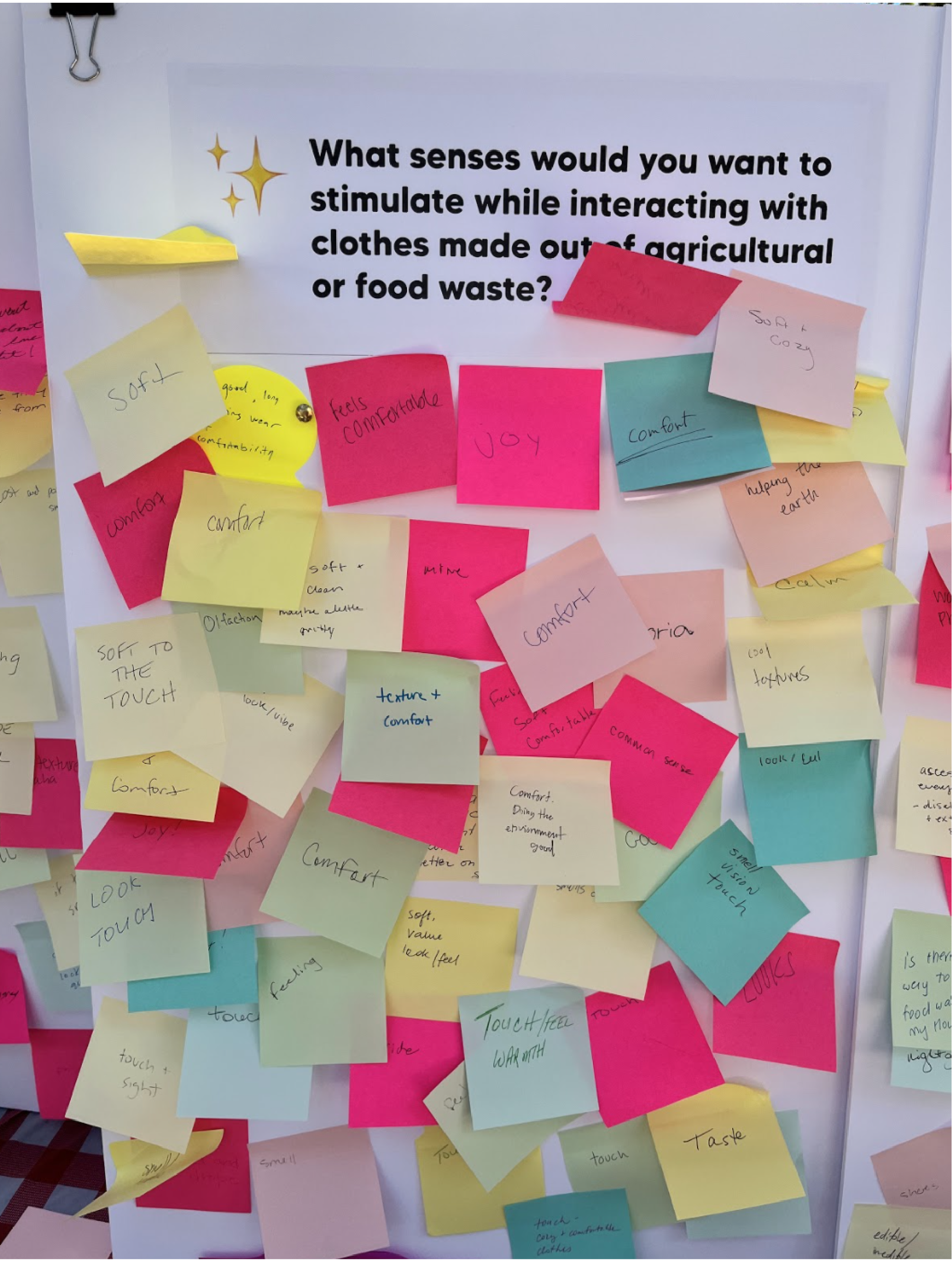


We conducted a Sensory Cue Workshop to understand user’s ideal experience of Perceiving, Deciding, Selecting, Buying and Wearing Clothes made out of Agricultural / Food Waste. The theme of this workshop was that of a Virtual Store!

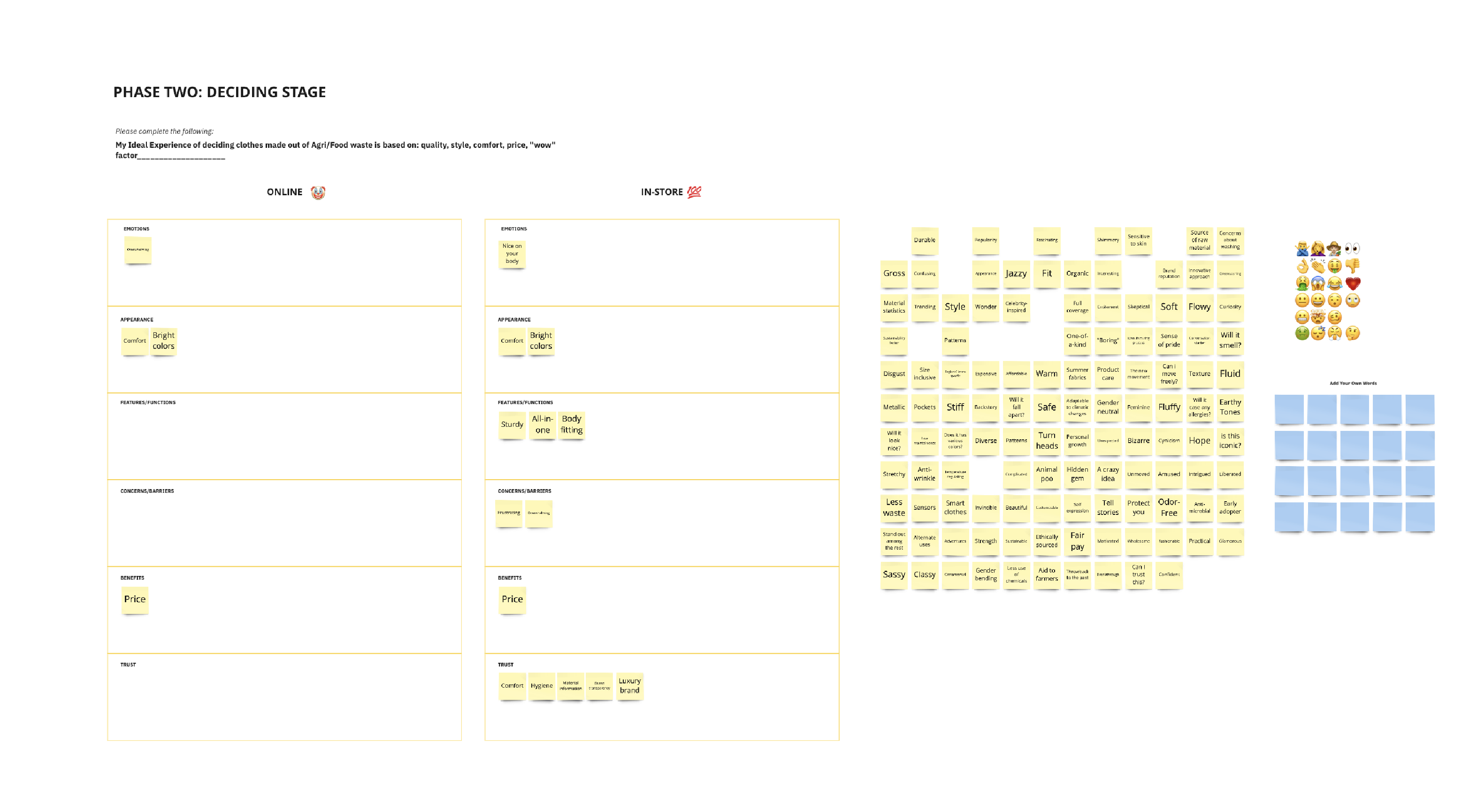
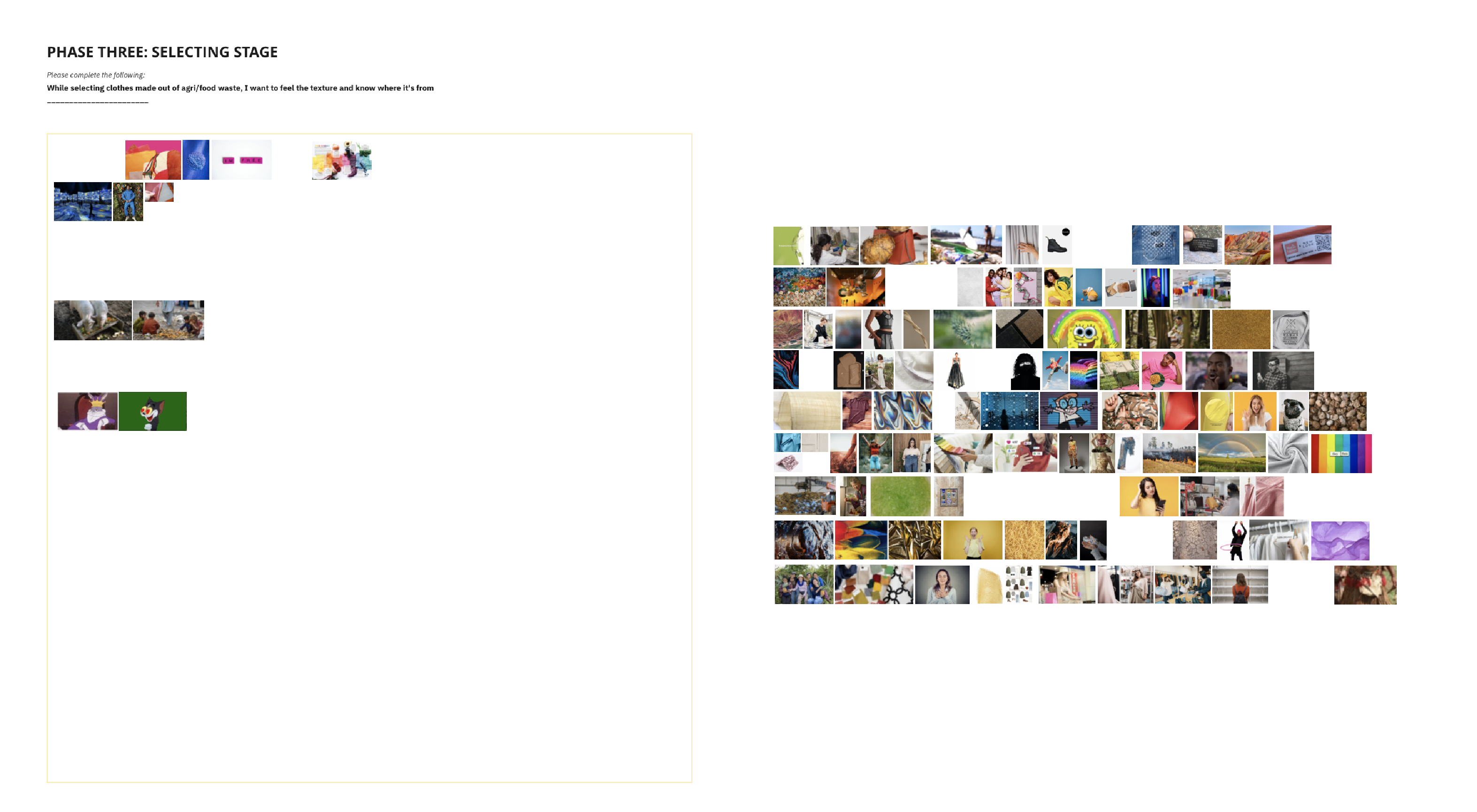
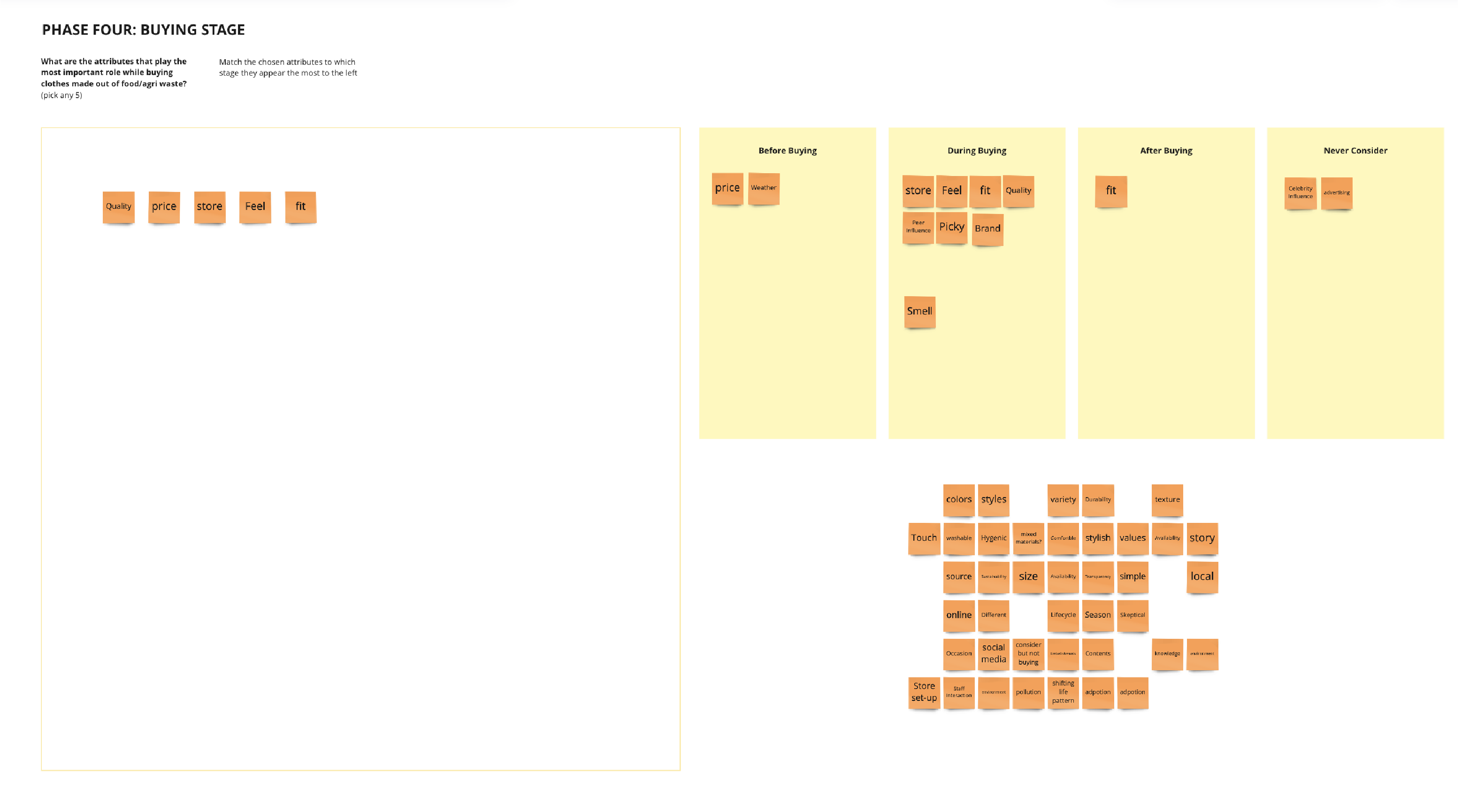
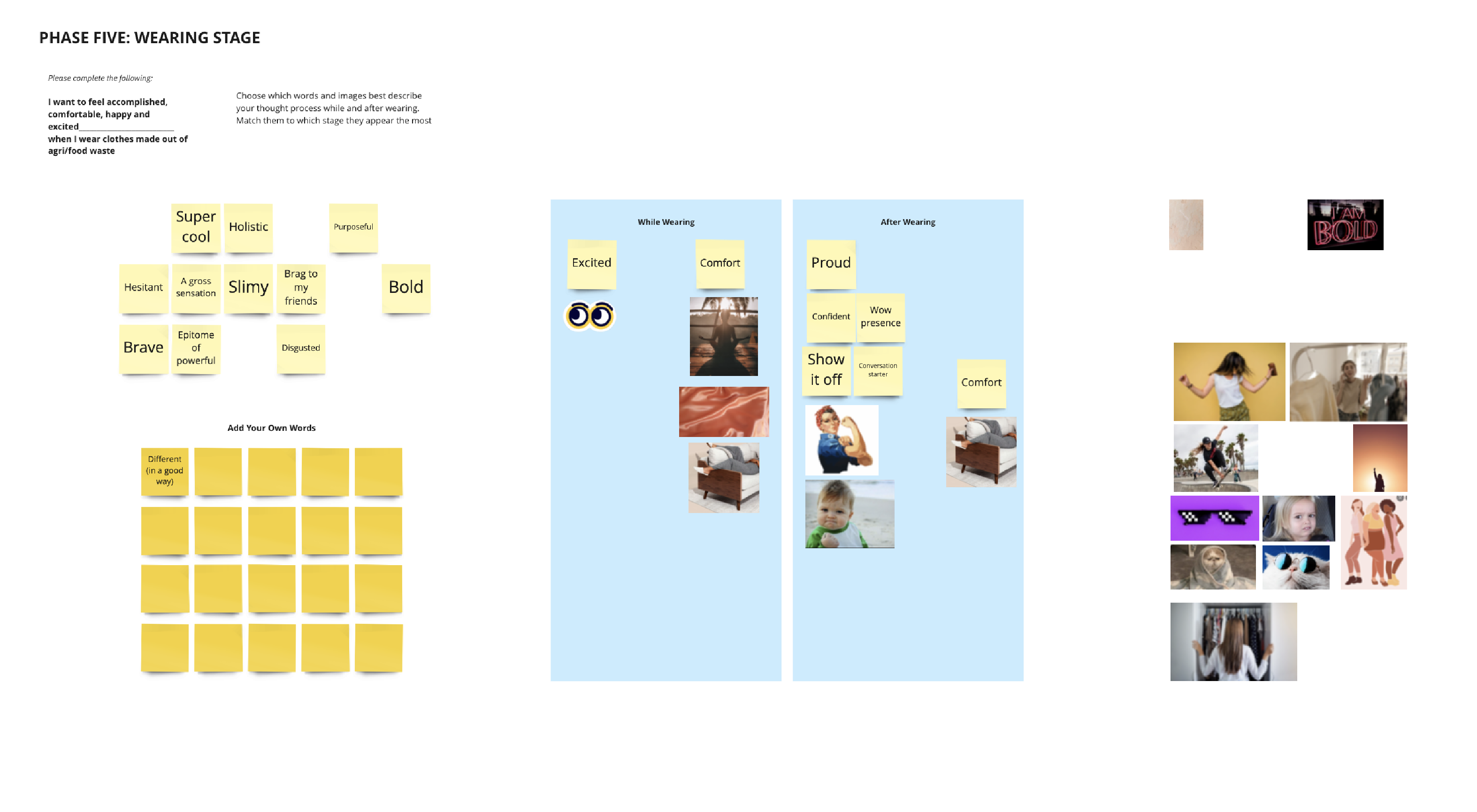

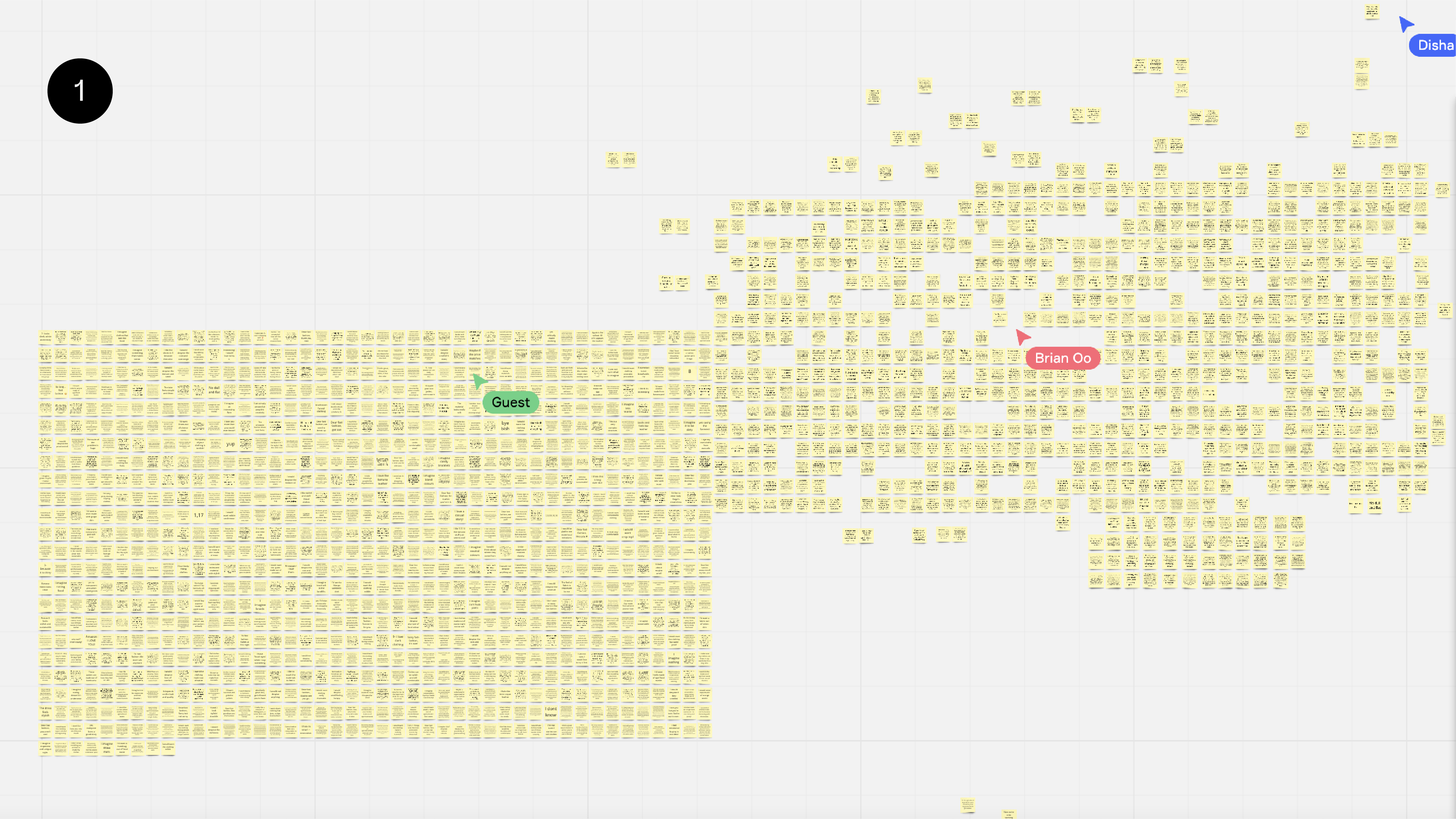
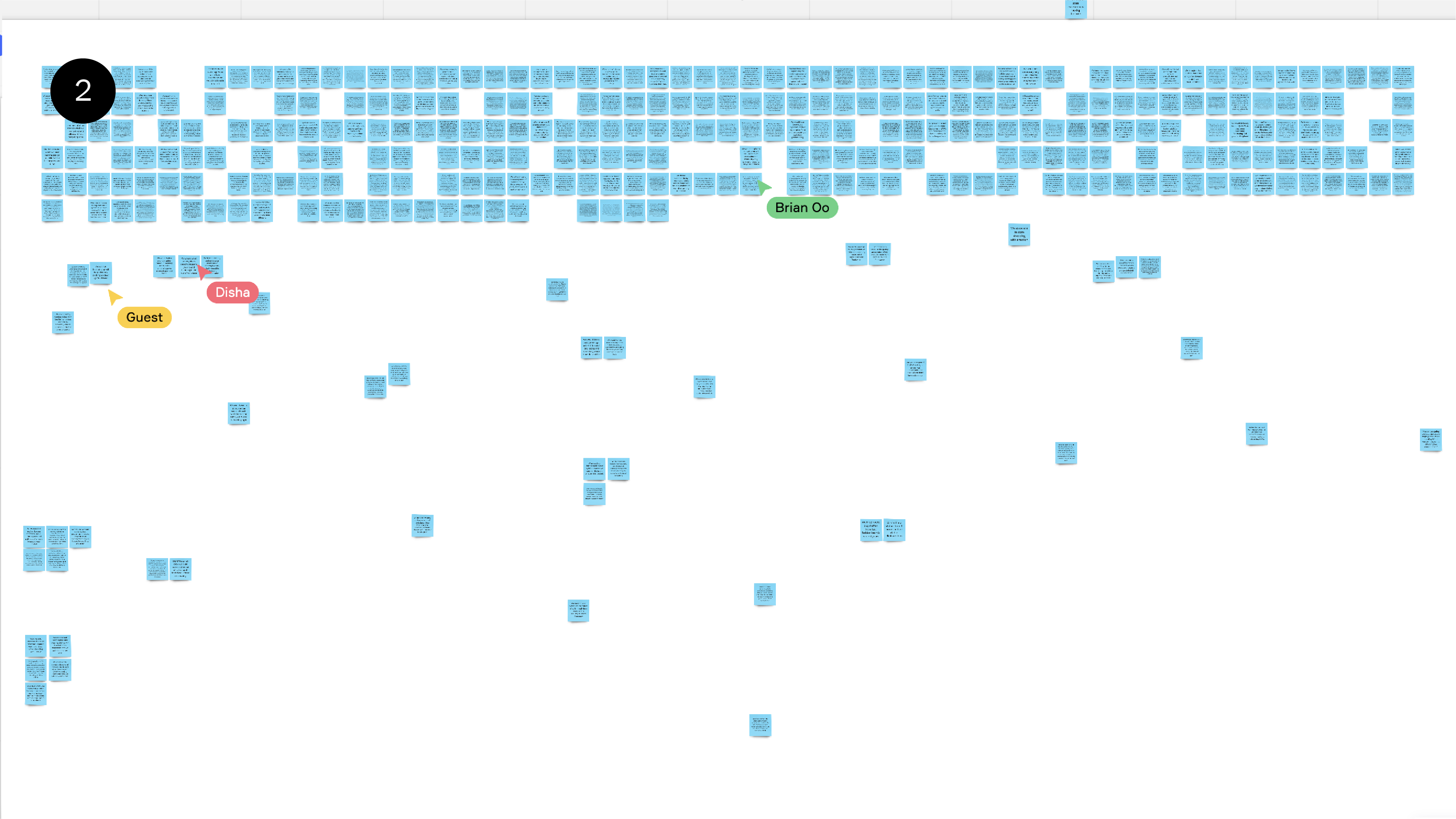

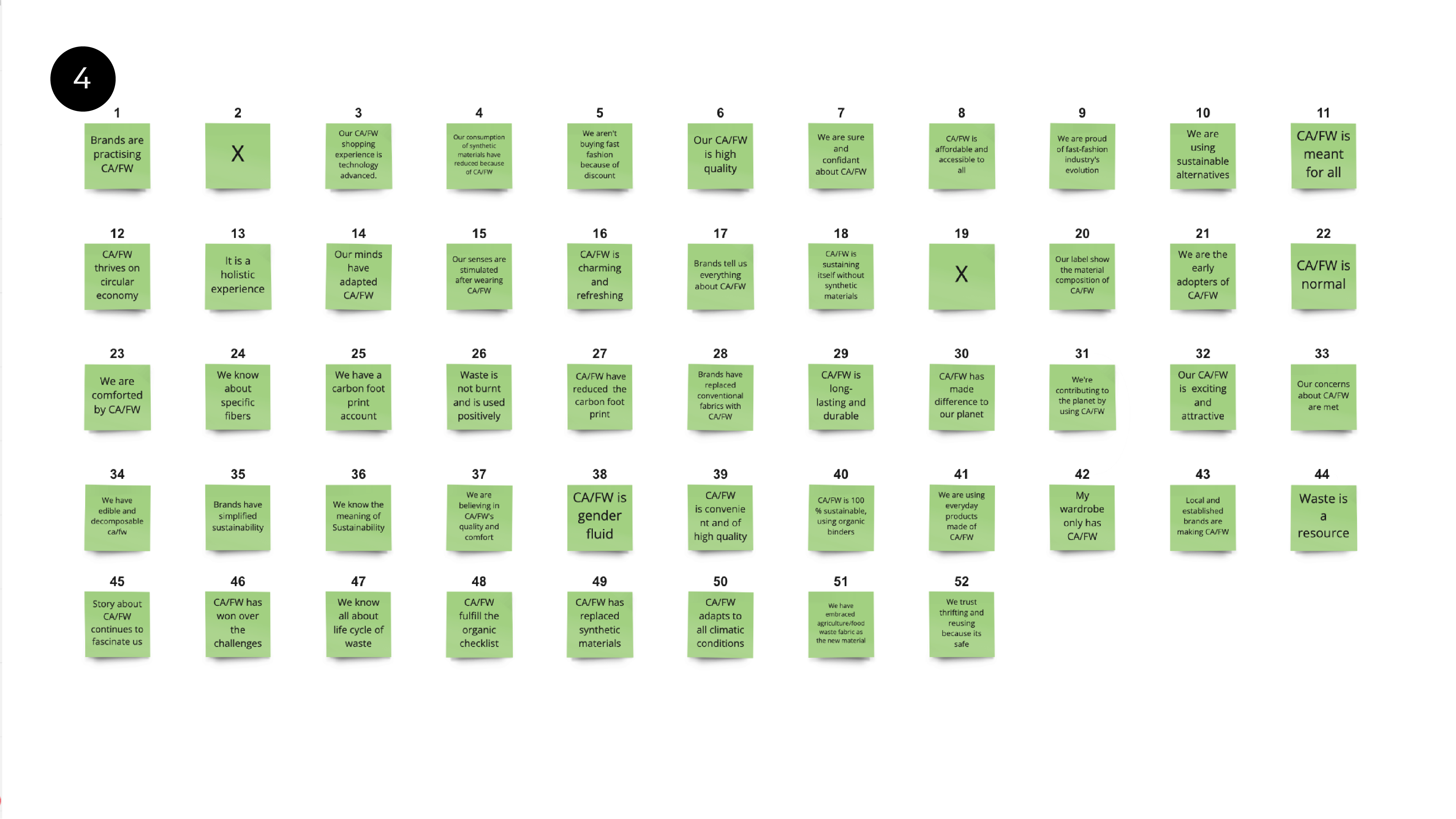
Our framework for
“The Ideal Experience
of wearing Clothes
made out of Agricultural
or Food Waste”
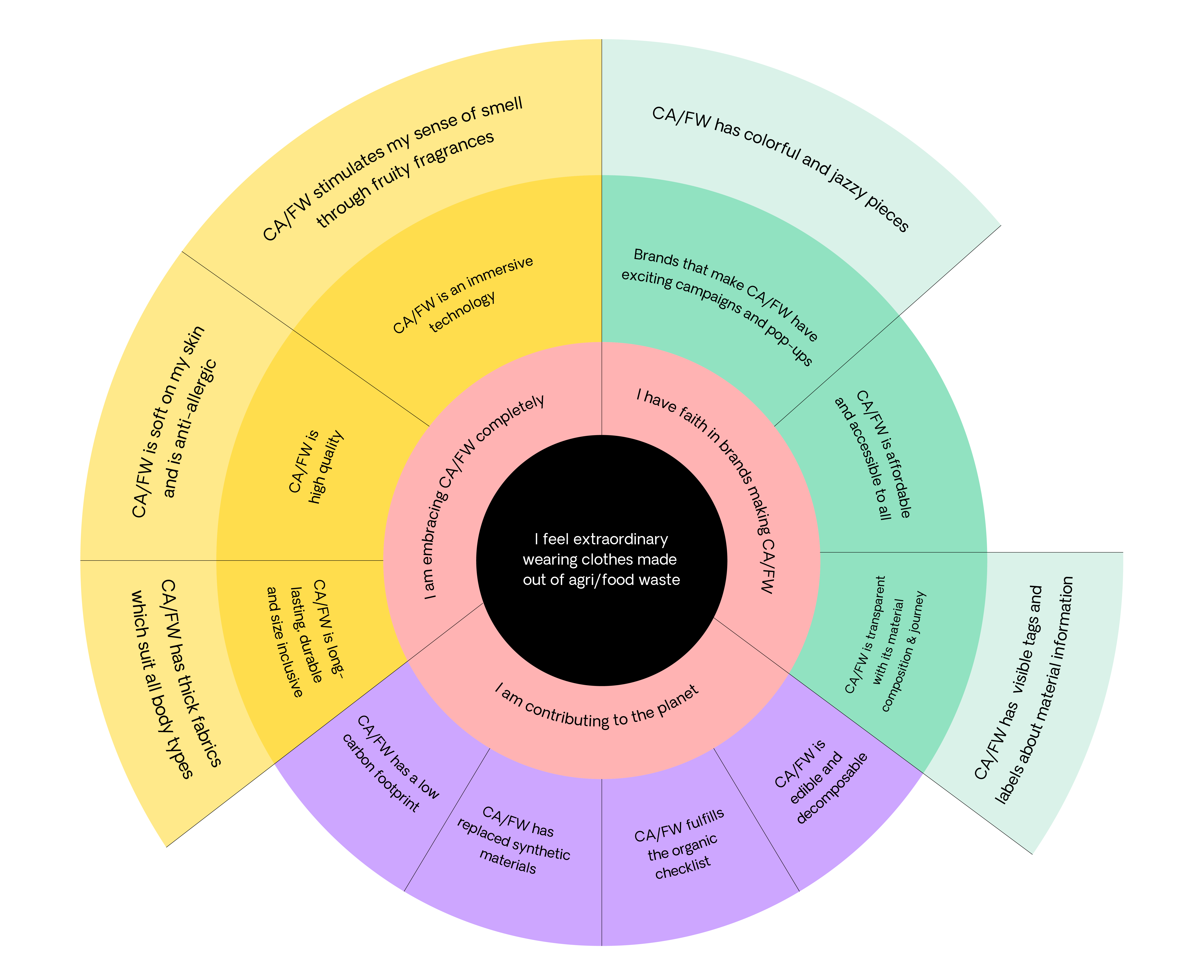
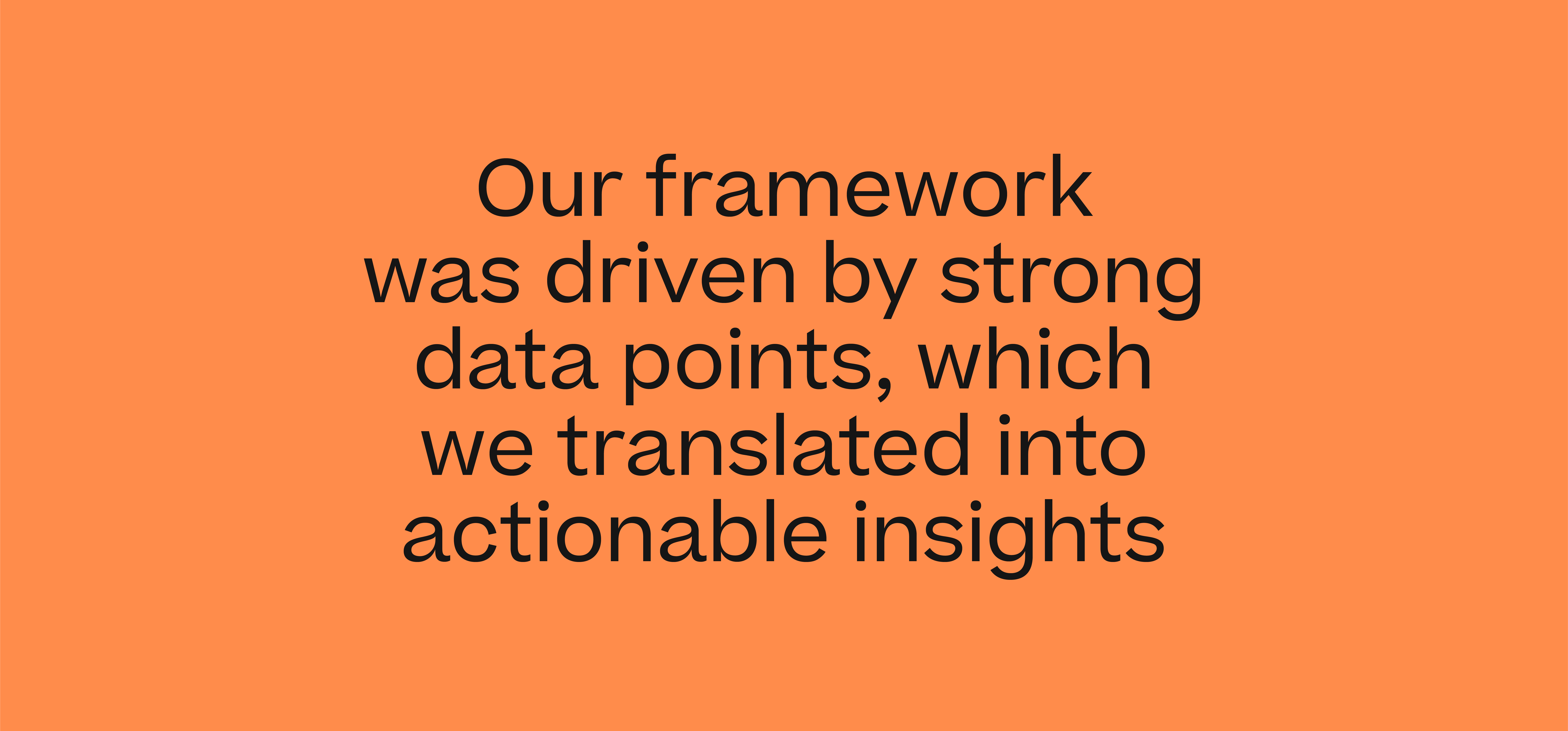
The Framework insights were then visually translated into a Client Magazine. This is our Bible and has all our findings and insights, presented in a digestible format. A common quote from people was that they want Clothes made out of Agricultural/Food waste to be fun, attractive and stylish and we wanted to translate that emotion through the visual language of the magazine.








Behind the Scenes


